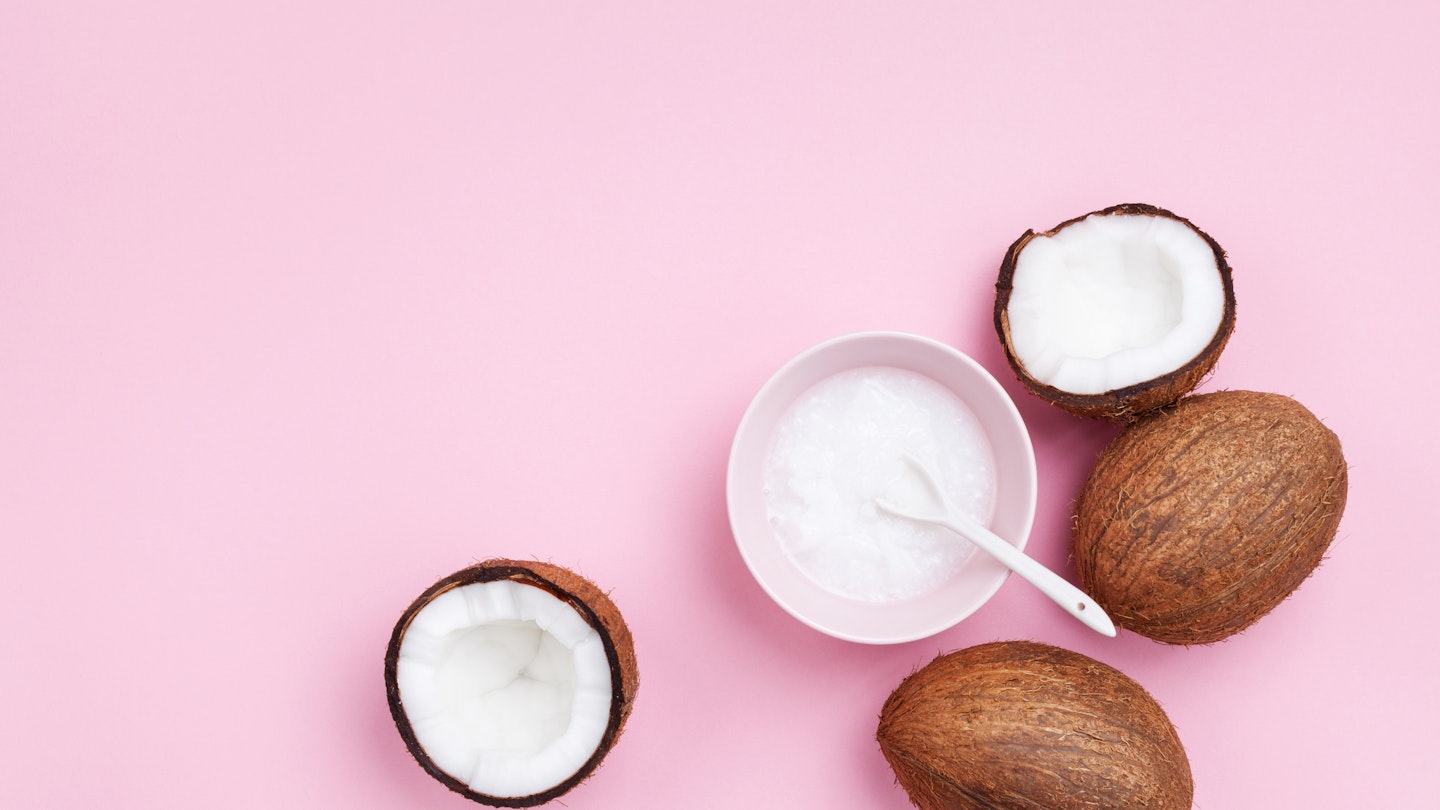If the last five years could smell, then they’d be shrouded in the sweet stench of coconut oil. You would have to be hiding under a rock not to notice its use in EVERYTHING from skincare, to coffee to cooking. Yet am I the only person who is willing to say I literally can’t stand the stuff?
I don’t mind the odd coconut- scented sun lotion and the oil is good for rubbing into my cracked heels (for the beauty record, a dermatologist once told me it’s the worst thing you can put on acne-prone skin), but cook an egg in it? Forget it. If the health bloggers are to be listened to, then everything from bacon to fish, to stir-fries and steaks should be cooked in the stuff. I’m not denying it may be quite good for us (it’s apparently rich in antioxidants), but I would rather eat my sweaty sports bra than a coconut-oil-sautéed omelette.
So I’ve decided to de-coco my kitchen cupboards. But what should I cook with that isn’t going to kill me? My go-to is olive oil but is that OK to use at a higher heat? Are you as confused as I am? I asked top nutritional therapist Amelia Freer for her thoughts. ‘I cook with virgin olive oil on a low temperature and try to avoid it burning,’ she says. ‘Every oil has a smoking point beyond which it starts to break down and may form potentially harmful free radicals.’ Amelia says that the smoking point of extra-virgin olive oil and coconut oil are 160°C and 179°C respectively. Meanwhile, virgin olive oil has a smoking point of 214°C and refined olive oil 241°C.
A lot of urban hippies I know are cooking with ghee, I tell her, a clarified butter commonly used in Ayurvedic food. ‘Ghee has a smoking point of 252°C,’ says Amelia, ‘so is good for cooking at high temperatures. Both butter and ghee are nearly 100% fat, but ghee is free of lactose so might be a better option for the lactose intolerant.’ So is grass-fed butter OK (I love butter)? ‘Butter has a 204°C smoke point and if you don’t have a lactose intolerance it’s fine to cook with,’ she says.
Sports nutritionist Scott Baptie, whose book 101 Ways To Lose Weight And Never Find It Again (£15, Quadrille) is a brilliant easy-to-understand guide to health, says, ‘It all comes down to moderation and remembering that oils have nine calories per gram.’ Contrary to popular belief, the health benefits of coconut oil don’t seem to outweigh olive oil. What’s interesting is that as well as possibly raising our ‘bad’ LDL cholesterol, coconut oil apparently boosts our ‘good’ HDL cholesterol more than other saturated fats, says Amelia. ‘At the moment, there is only short- term research on it, so we don’t know the long-term effects, unlike olive oil, which helps decrease LDL and increases HDL.’
The consensus? I’m sticking with olive oil, sometimes butter. The moral of this story is: don’t always believe the Instagram hype.
Follow Susannah @susannahtaylor
